So, now that we know that we need to wear eye protection, is it enough to wear our cute aviators and call it good? The emphatic answer is NO! While these sunglasses block the sun, they’re definitely not safety-certified or ballistic-rated. Eyewear certification is imperative on the range.
Sponsored by CrossBreed Holsters
With that being said, what is the difference between a plain pair of glasses and ones that provide protection for your eyes while shooting?
The ANSI (American National Standards Institute) has established impact resistance ratings and standardized tests to verify that eyewear will protect against impact hazards. The markings of Z87+ on a pair of safety glasses indicate that the eyewear is compliant with ANSI Z87.1 high impact and industrial safety standards for eye protection. A mark of Z87 (without the +) is for basic impact, rather than high impact. The Occupational Safety and Health Administration (OSHA) has written ANSI Z87.1 into occupational law, meaning that eyewear, safety goggles, face-shields, etc., meeting the ANSI safety rating must be worn by employees in hazardous jobs.
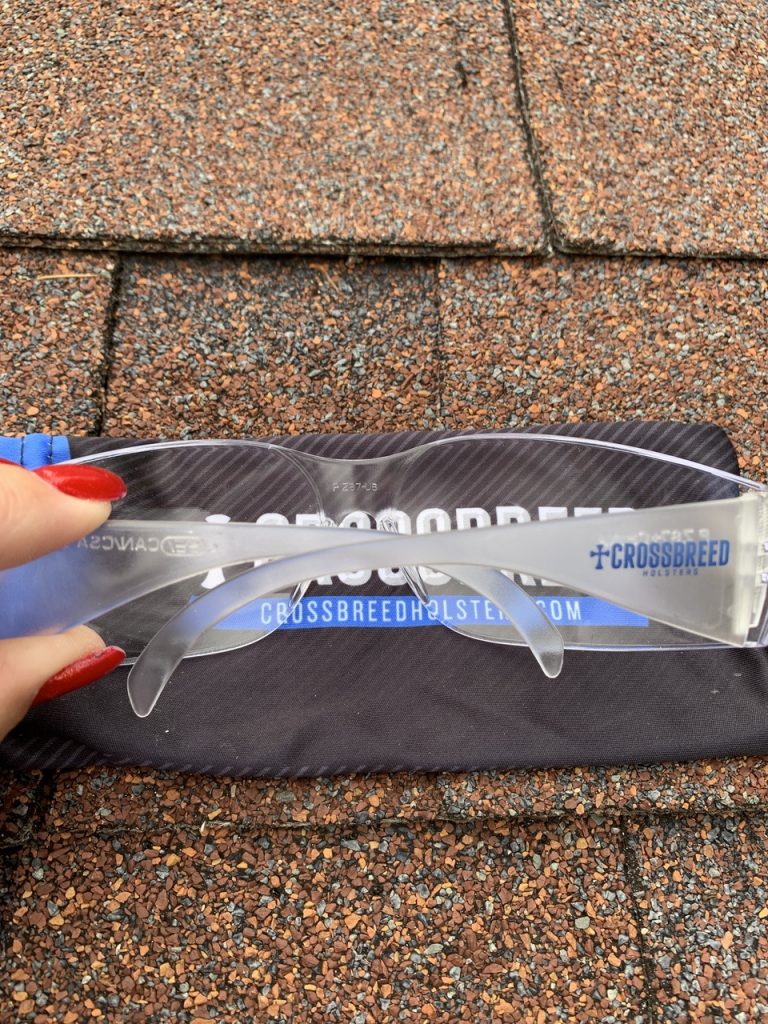
In order for eyewear to pass the basic Z87 benchmark, it goes through a test that involves a steel ball being dropped from a height of 50 inches. If the lens and frame survives and stays intact, the eyewear gets a passing grade.
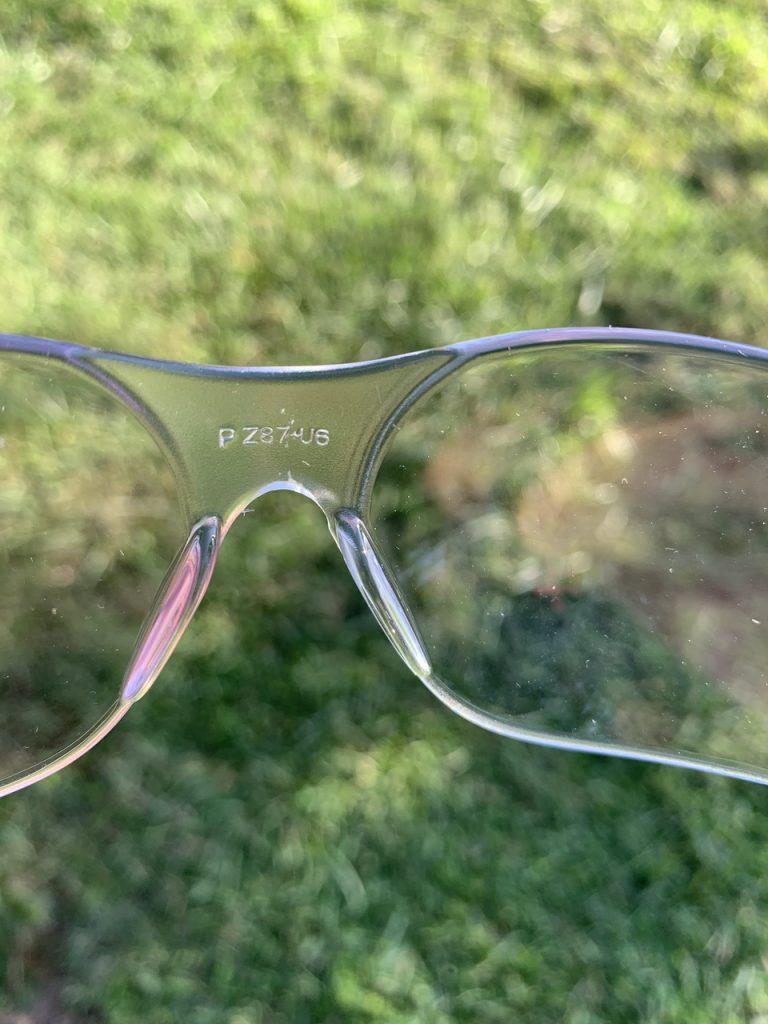
For the Z87+ rating, eyewear must go through a tougher set of tests than Z87, which includes high mass and high impact. The high mass test is designed to show the product’s strength, and high impact simulates particles striking the lens at a high rate of speed. In order to pass both tests, no part of the frame or lenses may break free or fracture.
The military uses similar tests and standards to the ANSI, but is much more rigorous. Their standard is called MIL-PRF-31013, which is a .15 caliber ballistics impact test. If the eyewear doesn’t pass this standard, it won’t be issued to U.S. military members.
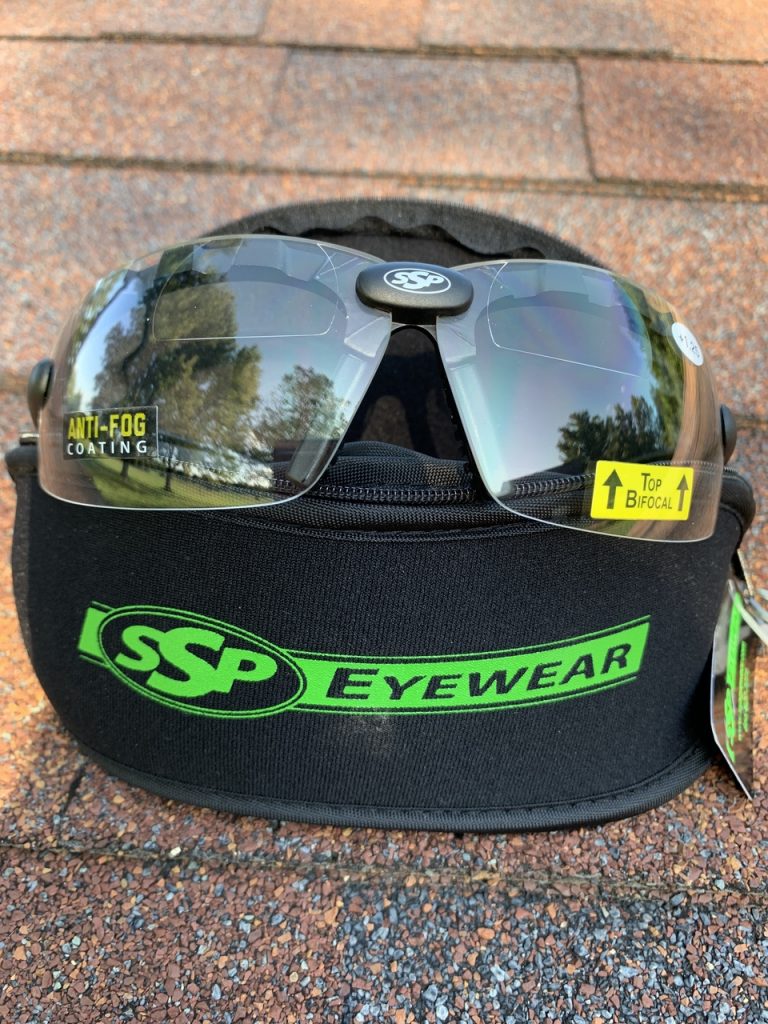
Military-grade eyewear testing produces approximately 7 times more impact energy than the ANSI Z87.1 standard, according to Safety Glasses USA. If eyewear passes the military ballistic standard tests, it may qualify to be listed on the APEL (Authorized Protective Eyewear List).
As I mentioned above, there are hazards to shooting a gun. Not only is it possible to have a bullet fragment ricochet, many other accidents can happen. Eyewear can protect a shooter from gunpowder and gasses that are expelled, flying hot casings (either from your gun or others around you), environmental debris such as sand or dust, and even the potential of a gun blowing up. In fact, our Babbs’ hubby would have lost an eye on the range if he hadn’t been wearing his shooting glasses when a revolver blew out on him. Let’s not forget that it’s also important to wear eye protection when cleaning guns to protect against cleaning products accidently getting into the eyes.
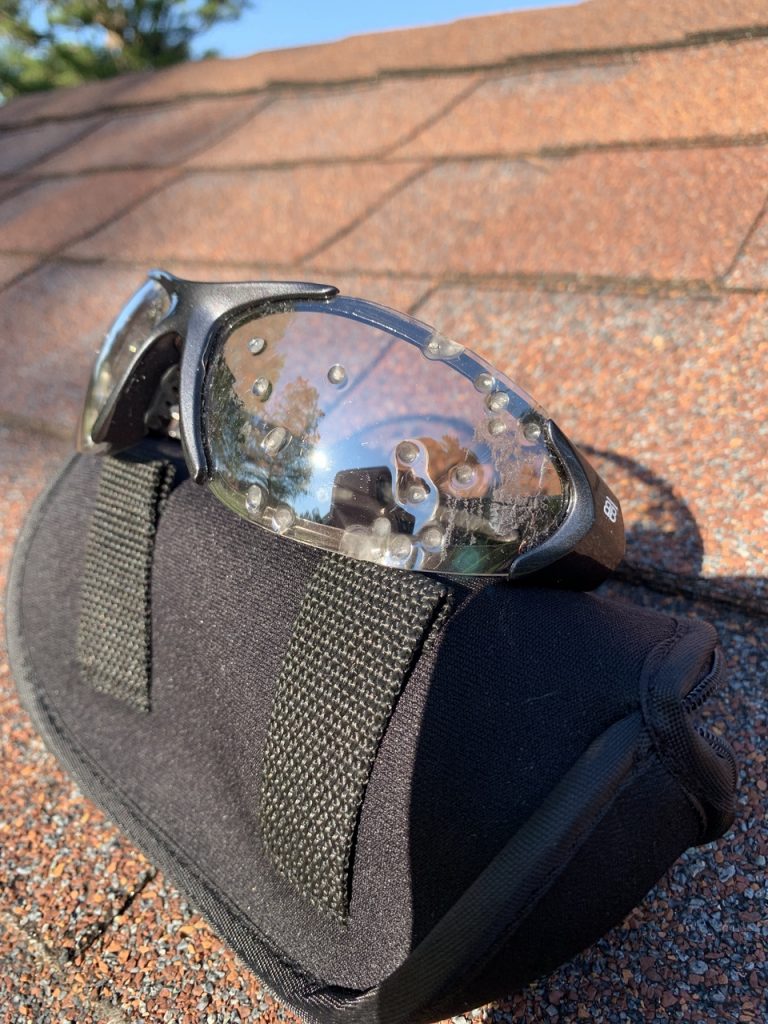
Regular sunglasses or prescription eyeglasses that are not ANSI rated don’t provide the same level of protection. Ordinary glasses have non-tempered glass lenses that can shatter on impact. Sunglasses and other eyewear that have cheap plastic lenses that are not able to withstand high-impact debris and can actually be more dangerous by breaking into sharp-edged pieces instead.
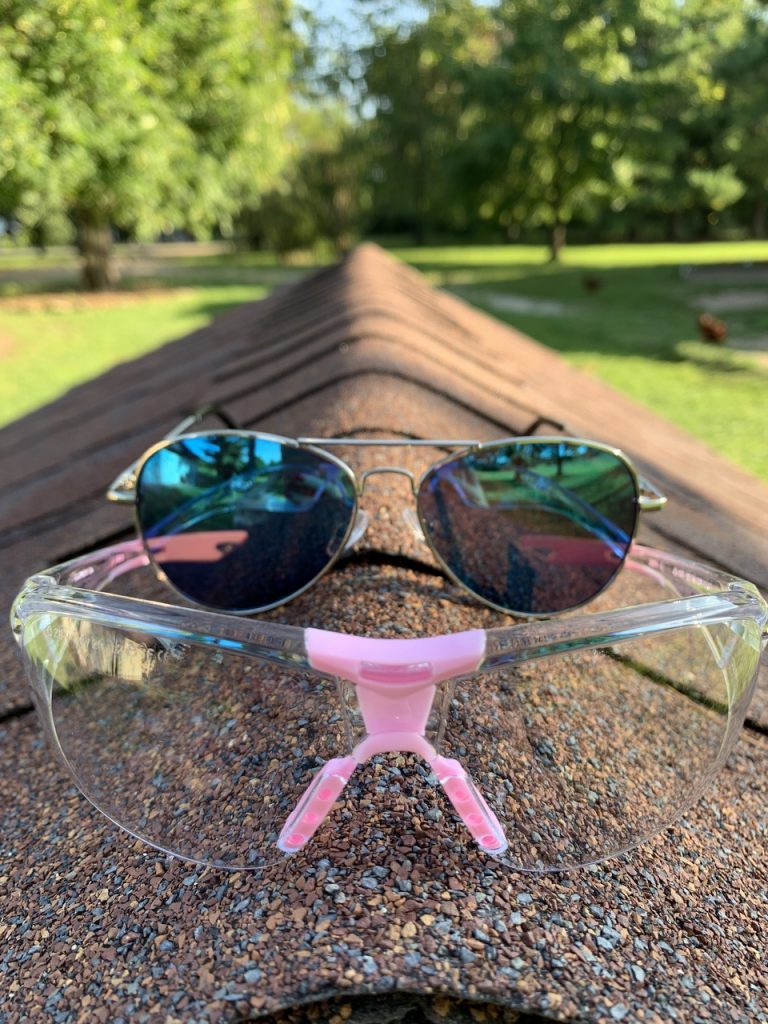
Protecting your eyes should be just as important as protecting your hearing while shooting. You wouldn’t put a picture window into your car as its windshield, so think about protecting your valuable eyes while shooting and use appropriate safety glasses.
Freelance writer Stacy Bright holds instructor certifications from the NRA in Pistol & Rifle, as well as being an Range Safety Officer and Refuse to be a Victim instructor. In addition to her NRA credentials, she also is a Missouri CCW instructor and teaches various other home and personal defense courses. “In a field dominated by men, I feel I bring a unique perspective to firearms and training, especially to women. I'm passionate about educating, empowering and developing confidence in those I train. In November of 2014, I started the Southwest Missouri chapter of The Well Armed Woman,” said Stacy. Stacy lives in southwest Missouri, and has been married for 20 years. Visit TWAW Facebook page: The Well Armed Woman-Springfield, MO Chapter. View all posts by Stacy Bright